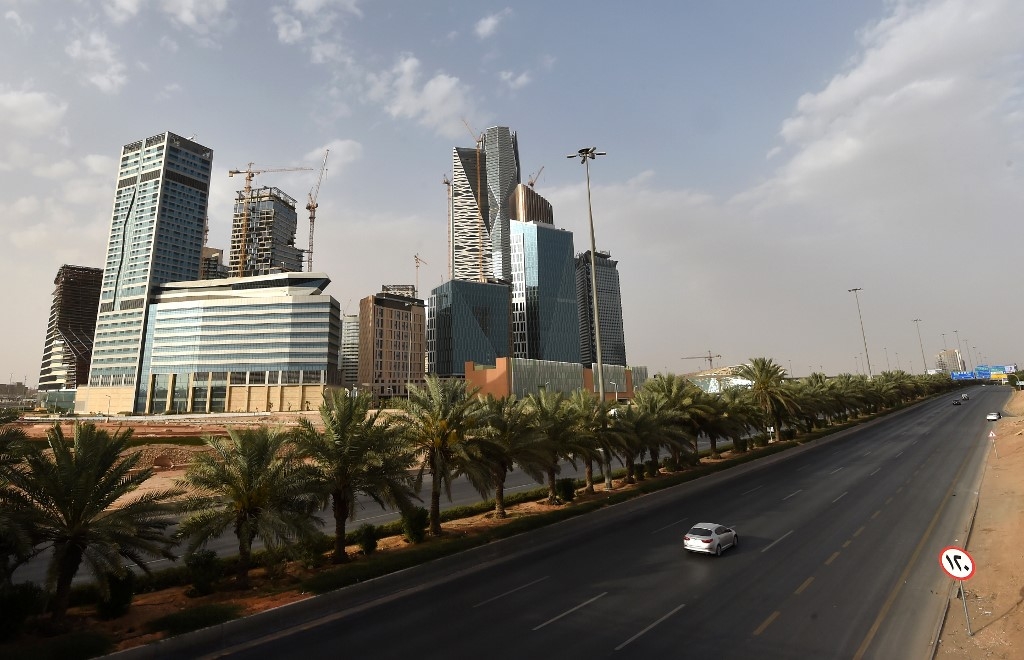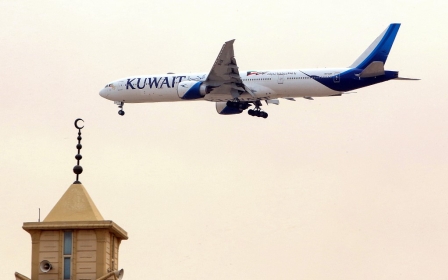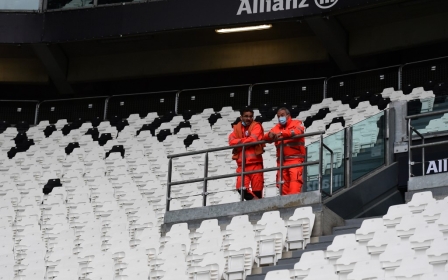More than a million foreign workers expected to leave Saudi Arabia in 2020

As many as 1.2 million foreign workers could leave Saudi Arabia this year, with some public and private sectors unlikely to bounce back in the near future due to the economic impact of the coronavirus pandemic.
Riyadh-based Jadwa Investment company said in a report earlier this week that a total of 178,000 applications were made to the "Awdah" service between 22 April and 3 June, an initiative that facilitates the departure of foreign workers.
The investment company said around 300,000 expats had already left the kingdom, representing roughly 2.5 percent of the country's total employees.
"By the end of 2020, we expect a total of around 1.2 million expat workers to leave the local labour market," Jadwa projected.
Hospitality, food services, retail, accommodation, administrative and support activities industries could be impacted by the departures, with some sectors unlikely to get back in full swing in the near future.
New MEE newsletter: Jerusalem Dispatch
Sign up to get the latest insights and analysis on Israel-Palestine, alongside Turkey Unpacked and other MEE newsletters
Despite the expat exodus, unemployment rates among Saudis are expected to remain largely unchanged at 12 percent by the end of the year, Jadwa said.
Replacing foreign workers with Saudis has been an official goal for decades, with authorities employing strict "Saudization" regulations.
Still, after the last oil market crisis, even as hundreds of thousands of foreigners left Saudi Arabia, only some jobs were filled by Saudi nationals.
"With a large departure of expats during 2020, there is a higher chance for expat substitution by citizens in certain sectors," Jadwa said.
The coronavirus pandemic has brought significant hardship for small-to-medium size enterprises (SMEs) in the kingdom, with Jadwa warning that SMEs are "expected to be at the heart of the economic impact".
In an attempt to contain the severe economic impact of the coronavirus pandemic on the state's budget, Riyadh announced plans last month to triple the rate of value-added tax (VAT) from July and suspend a cost of living allowance - with the new measures expected to save $26bn for state coffers.
Before the kingdom's ill-fated oil price war with Russia, Saudi Arabia's finance ministry had asked government agencies to propose a 20-30 percent cut in their budgets due to the slide in oil prices.
But with Brent Crude currently trading at $39 a barrel, and Riyadh needing oil prices to be above $80 a barrel in order to balance its budget, the kingdom's budget deficit could jump to 15 percent of gross domestic product (GDP) this year, compared to a deficit of 4.7 percent of GDP in 2019.
A Saudi financial decline has actually been in the works for some time, Middle East Eye reported last month. When Crown Prince Mohammed Bin Salman's father took over as king in January 2015, foreign reserves totalled $732bn.
In December last year, they had been diminished to $499bn, a loss of $233bn in four years, according to the Saudi Arabian Monetary Authority.
Middle East Eye delivers independent and unrivalled coverage and analysis of the Middle East, North Africa and beyond. To learn more about republishing this content and the associated fees, please fill out this form. More about MEE can be found here.





